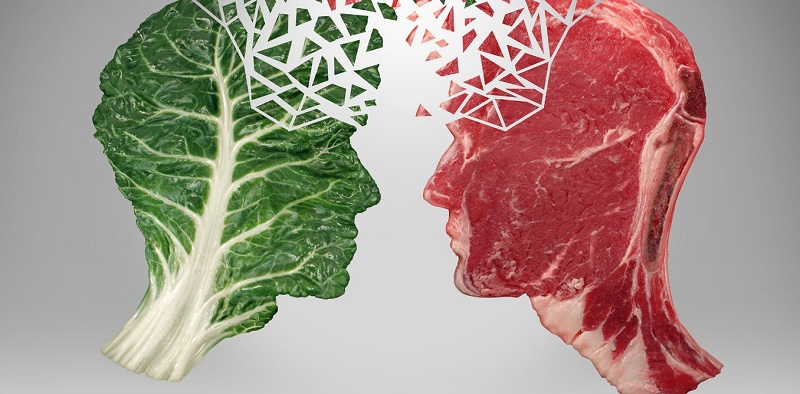The topic of giving up meat is not new. Every year, an increasing number of people who want to switch to vegetarianism, are interested in all possible benefits and consequences. There are many pros and cons of vegetarianism and everyone should be assessed before starting the transition to such a diet. The first thing to note is that it is not for everyone. It is contraindicated to refuse meat products to children under 10 years old, people after surgery, and those suffering from severe digestive system diseases.
The advantage of avoiding meat is that by adhering to this diet you can lose weight, get rid of slagging and toxins. It also helps to avoid problems with the cardiovascular system, because plant food contains little cholesterol, which provokes them. In addition, it helps maintain healthy joints and muscles.

Of the minuses lack of vitamin B12, because it is only in animal products, but it can be taken in the form of tablets. Also, the exclusion of meat can cause anemia. It is also not easy at home to formulate a diet in such a way that the body has enough of all the necessary microelements. Be sure to eat every day varied and full.
The pros and cons of vegetarianism should be studied in advance to avoid trouble in the future. Still, most of the benefits of such food more than harm.
The benefits of vegetarianism
The benefits of such nutrition are for the organism and for the ecology as a whole. After numerous scientific studies, scientists confirmed that vegetarians are healthier than meat eaters, their blood pressure is normalized and the risk of cancer and diabetes is reduced. In addition, people who refuse meat products look much younger. Another benefit is that food without meat is cheaper.
This will significantly affect the budget of the family as a whole. Also in fruits and vegetables, there are no chances to meet antibiotics with which carcasses are often stabbed before being sold. The big plus is the work of the kidneys and the digestive system. Vegetarianism includes several types that differ among themselves.

Types of vegetarianism
- Not so easy in this power section. It accommodates several species.
- Lacto-vegetarianism. Such people refuse all products of animal origin, except for dairy products.
- Ovo-vegetarianism. Representatives eat eggs (only without embryos), exclude all types of meat and fish.
- Lacto-ovo vegetarianism. There is a rejection of meat products and fish, but they use both milk and eggs.
- Veganism Excludes all animal products.
The last point requires special attention.
Vegetarianism or veganism
Many people confuse these two concepts, but there is a difference. Vegans consume neither meat, nor fish, nor milk, nor eggs, even honey is excluded.
Vegetarians, in terms of food intake, get more vitamins and essential trace elements than vegans. Most often, those who refuse from dairy products and eggs are also raw foodists (those who consume food without heat treatment). Here doctors and scientists are more unequivocal. They argue that this form of nutrition perfectly cleanses the body, helps to lose weight and unload the intestines, but on a permanent basis it is quite harmful to health.

Veganism is ideal for a period of not more than a month, everything above, alas, can harm the body. Choice – vegetarianism should be balanced and deliberate. In any case, you should listen to yourself, your body and do everything to bring him only benefit.

